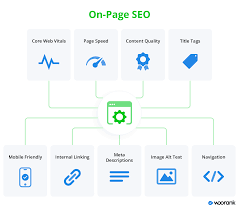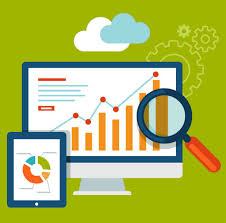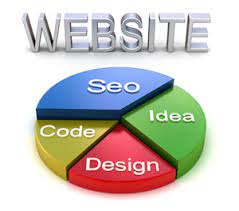The Importance of On-Page Optimization in Digital Marketing
When it comes to digital marketing, on-page optimization plays a crucial role in improving your website’s visibility and ranking on search engine results pages (SERPs). This process involves optimizing various elements on your website to make it more search engine-friendly and user-friendly.
Key Aspects of On-Page Optimization:
- Title Tags: Creating unique and relevant title tags for each page that accurately describe the content can help search engines understand the topic of your page.
- Meta Descriptions: Writing compelling meta descriptions that summarize the content of the page can improve click-through rates from search results.
- URL Structure: Using SEO-friendly URLs that include keywords can make it easier for both search engines and users to understand the content of the page.
- Keyword Placement: Strategically placing relevant keywords throughout your content can signal to search engines what your page is about.
- Internal Linking: Linking to other relevant pages within your website can help search engines discover and index more of your content.
- Optimized Images: Using descriptive filenames and alt text for images can improve accessibility and provide additional context for search engines.
The Benefits of On-Page Optimization:
By implementing effective on-page optimization strategies, you can:
- Increase organic traffic to your website
- Improve your website’s visibility in search engine results
- Enhance user experience by providing relevant and valuable content
- Boost conversion rates by attracting qualified leads
- Build credibility and authority in your industry
In conclusion, on-page optimization is a fundamental aspect of any successful digital marketing strategy. By paying attention to these key elements and continuously refining your approach, you can drive more traffic to your website, improve user engagement, and ultimately achieve your business goals.
Top 5 Essential On-Page Optimisation Tips for Effective Digital Marketing
- Include relevant keywords in your page titles and meta descriptions.
- Optimize your images by using descriptive filenames and alt text.
- Create high-quality, engaging content that is valuable to your audience.
- Use internal linking to connect related pages on your website.
- Ensure your website loads quickly and is mobile-friendly for better user experience.
Include relevant keywords in your page titles and meta descriptions.
Including relevant keywords in your page titles and meta descriptions is a crucial tip for effective on-page optimization in digital marketing. By incorporating targeted keywords that accurately reflect the content of your page, you can improve your website’s visibility and relevance to search engines. This practice not only helps search engines understand the context of your content but also entices users to click through to your website by providing a clear and compelling summary of what they can expect to find. Remember, strategic keyword placement in titles and meta descriptions can significantly impact your search engine ranking and click-through rates, making it an essential component of any successful digital marketing strategy.
Optimize your images by using descriptive filenames and alt text.
Optimizing images by using descriptive filenames and alt text is a crucial tip for effective on-page optimization in digital marketing. By assigning relevant filenames and providing informative alt text to your images, you not only improve the accessibility of your content but also enhance the context for search engines. This practice can help boost your website’s visibility in search results, improve user experience by providing additional information about the visuals, and ultimately contribute to a more SEO-friendly website that engages both users and search engines effectively.
Create high-quality, engaging content that is valuable to your audience.
Creating high-quality, engaging content that provides value to your audience is a cornerstone of effective on-page optimization in digital marketing. By crafting content that is informative, relevant, and captivating, you not only attract the attention of your target audience but also keep them engaged and coming back for more. Valuable content not only helps to improve your website’s search engine rankings but also establishes your brand as an authority in your industry, building trust and loyalty among your audience. Remember, quality content is key to driving organic traffic, increasing user engagement, and ultimately achieving your digital marketing objectives.
Use internal linking to connect related pages on your website.
Utilising internal linking is a valuable strategy in on-page optimization for digital marketing. By connecting related pages within your website through hyperlinks, you not only help users navigate seamlessly through your content but also assist search engines in understanding the structure and relevance of your site. This practice can improve the overall user experience, increase the visibility of important pages, and enhance the authority and ranking of your website in search results. Effective internal linking is a simple yet powerful way to boost engagement and drive traffic to key areas of your online presence.
Ensure your website loads quickly and is mobile-friendly for better user experience.
In the realm of digital marketing, a crucial tip for effective on-page optimization is to prioritise the speed of your website’s loading time and ensure its mobile-friendliness. A swift-loading site that is optimised for mobile devices not only enhances user experience but also positively impacts search engine rankings. By catering to the growing number of mobile users and providing them with a seamless browsing experience, you can significantly improve engagement, retention, and ultimately drive better results for your digital marketing efforts.




